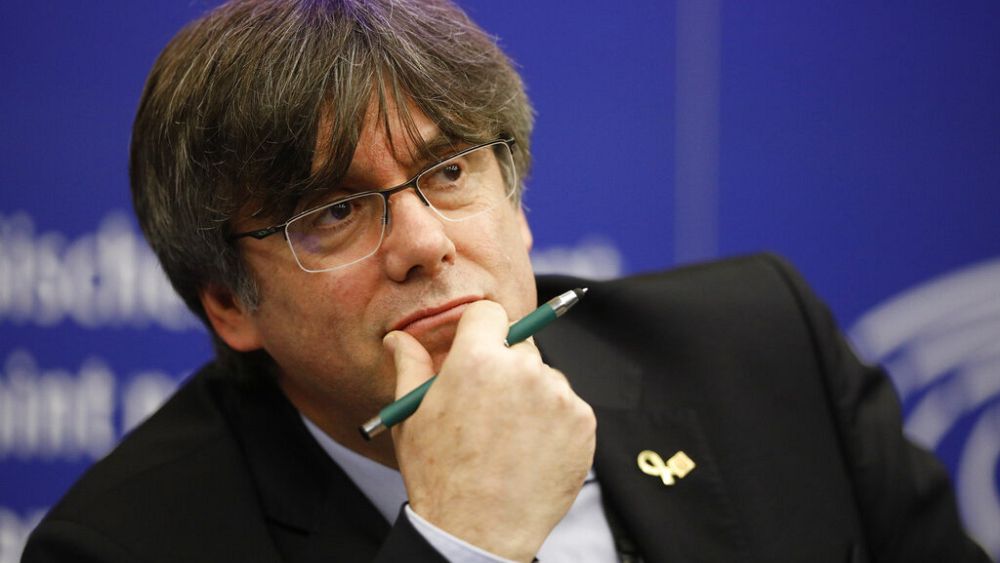
Catalonia’s former leader Carles Puigdemont has been defeated in a bid to stop the loss of his European parliamentary immunity.
MEP Puigdemont was in March stripped of the protection, which had prevented attempts in Spain to put him on trial over a Catalan independence referendum that Madrid considered illegal and unconstitutional.
Puigdemont went to the European Court of Justice in an attempt to have the lifting of his immunity suspended.
But his request — and that of two other MEPs — has now been rejected, with the court saying there was no reason the three could not face trial in Spain.
“There is nothing to suggest that the Belgian judicial authorities or the authorities of another member state could execute the European arrest warrants issued against the MEPs and hand them over to the Spanish authorities,” the court ruled.
In March, MEPs overwhelmingly agreed to strip the immunity of Puigdemont, and two of his associates, former Catalan health minister Toni Comín and former regional education Minister Clara Ponsatí.
Puigdemont fled to Belgium in October 2017, fearing arrest after holding the Catalonia independence referendum.
In addition to charges over their role in the referendum, Puigdemont and Comín are also accused of misusing public funds.
The three Catalan separatists won seats in the European Parliament and were afforded protection as members of the EU assembly as a result.
The decision leaves the three open to prosecution and possible extradition to Spain.
Madrid had previously attempted to have Puigdemont returned for trial but failed to convince Belgian justice authorities to extradite him, as the charge of “rebellion” did not exist under Belgian law.
Spain has handed out jail terms between nine and 13 years to nine other Catalan leaders for their role in the independence ballot.
But last month, Spanish Prime Minister Pedro Sanchez pardoned the pro-independence leaders, and they were released from prison after serving sentences of between three-and-a-half and four years.
Spain’s cabinet said the pardons were issued in an effort to reconcile relations in the country’s restive northeastern region.
But the government decree means that the former prisoners will not be able to hold public office until the end of their original sentences — which range from nine to 13 years — and they will return to prison if they break Spanish law again.
The nine separatists released in June were greeted by supporters and have pledged that they will “achieve Catalonia’s independence”.
The pardons have provoked strong opposition from right-wing and far-right parties in Spain.











